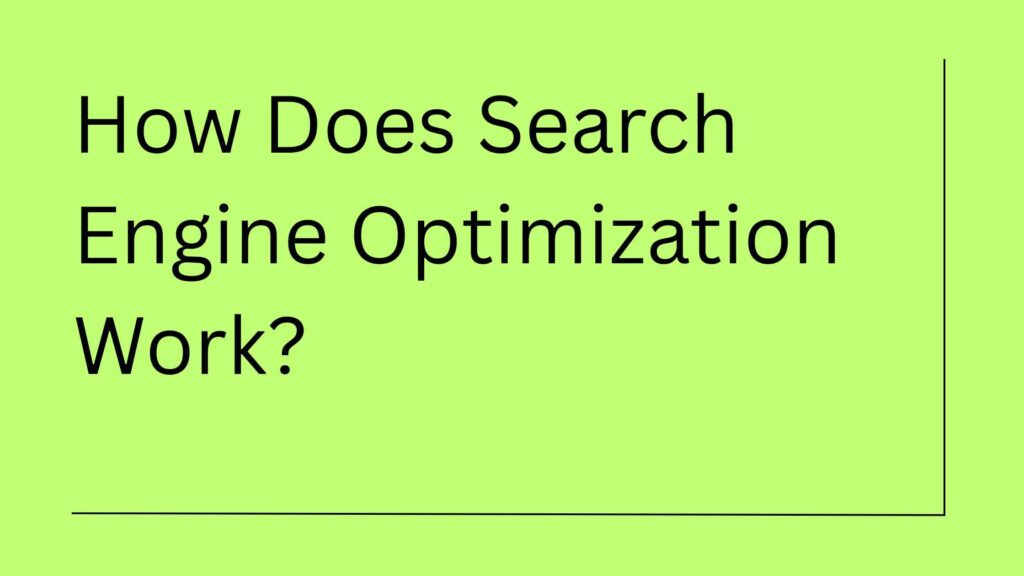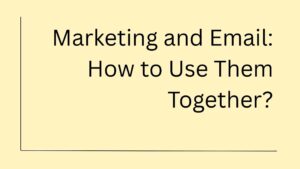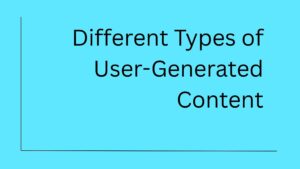Being in the marketing sector, have you ever wondered how SEO actually works at any moment?
Search Engine Optimization three words that carry a weird mix of mystery and importance for anyone trying to grow online. If you’ve ever published a blog, launched a website, or started a business, chances are you’ve heard about SEO.
But how does it actually work?
Not just in theory. Not just the technical stuff. But in practice. In the real world, people type things into Google and decide, sometimes in seconds, what they’ll click on.
Let’s break it down. Naturally. Like someone who’s figuring this out right alongside you.
SEO is More Than Just Keywords in This Context
When people think about SEO, they often imagine keywords. You know, the exact phrases someone might search for on Google. And while keywords do matter, they’re just a small part of a much bigger system.
Here’s a better way to think about it:
SEO is about helping search engines understand what your content is about and proving that it’s worth showing to people.
So yes, keywords matter. But so do structure, speed, links, content quality, and a hundred other little things that make your site either easy or difficult to trust.
It’s like showing up to a job interview. Your resume gets you in the door. But your answers, body language, and overall vibe are what land the job.
Same with SEO. Keywords open the door. Everything else decides whether you stay visible.
What Search Engines Actually Do?
Before getting deeper into optimization, it helps to understand how search engines like Google actually work.
In simple terms, they go through three major steps:
- Crawling
Bots (as per Google, it is also called spiders) go out and scan the web. They look at websites, read the content, and follow links. Think of it like indexing every book in a giant library. - Indexing
The content they find gets stored and organized. Pages are cataloged based on what they’re about, how detailed they are, how fresh they seem, and more. - Ranking
When someone types in a search query, Google sifts through the index to find the most relevant and useful results and lists them from best to worst.
SEO is about making sure your pages can be found, understood, and ranked highly. Ideally, on page one, because let’s be honest, who clicks “Next”?
What Are the Core Components of SEO?
Alright. Let’s move from concept to components. Here’s what SEO involves on a practical level.
1. On-Page SEO
This is what you do on your own site or page. It includes:
- Title Tags – What shows up as the clickable link in search results. Needs to be clear and relevant.
- Meta Descriptions – A short summary that helps people decide if they want to click.
- Headings (H1, H2, H3) – Structure matters. Break up content and organize it logically.
- Keywords – Naturally woven into your text, especially in titles and headers. Not stuffed awkwardly.
- Image Alt Text – Helps describe visuals for both users and search engines.
- URL Structure – Short, clean, and descriptive URLs perform better than jumbled messes.
Basically, on-page SEO is about making your content easy to understand both for readers and search engines.
2. Off-Page SEO
This is everything that happens outside your website but still impacts your rankings.
- Backlinks – When other sites link to your content, search engines treat that as a vote of confidence. More quality links = more authority.
- Mentions & Shares – If your brand is talked about (even without links), it can help.
- Guest Posting – Writing on other sites helps you gain visibility and get backlinks in return.
- Social Signals – Not a huge ranking factor, but viral or heavily shared content tends to attract attention.
So if on-page SEO is like keeping your house clean, off-page SEO is what your neighbors say about you. Both matter.
3. Technical SEO
This is the behind-the-scenes stuff. Invisible to readers, but essential for search engines.
- Site Speed – Slow sites frustrate users. Google notices that.
- Mobile Friendliness – More than half of web traffic is mobile. Your site should adapt.
- Crawlability – If search engines can’t access your pages properly, they can’t rank them.
- Secure URLs (HTTPS) – Security matters. Sites with HTTPS are preferred.
- Structured Data – Helps Google understand specific elements of your content (like recipes, reviews, FAQs).
You don’t need to be a developer, but knowing this side of SEO helps you build a stronger foundation.
How SEO Works in A Real Example? A Walk Through
Sometimes abstract ideas click better when they’re tied to something concrete. So let’s say you’ve just launched a blog post titled:
“10 Easy Recipes for Beginners Who Just Moved Out”
Now, you’re hoping that people who search something like “easy recipes for first apartment” or “cooking tips for beginners” will find your post on Google.
So… how does SEO make that happen?
Here’s what it might look like, step by step:
1. You Publish the Content
You write a helpful post filled with:
- Simple, easy-to-follow recipes
- Tips for stocking a basic kitchen
- Photos of the dishes
- Clear structure (headings, bullet points, ingredients list)
You’ve also made sure the title tag, URL, and meta description are optimized with the phrase “easy recipes for beginners.” Not keyword stuffing, just natural, helpful language.
For example, your URL might be:
yourfoodblog.com/easy-recipes-for-beginners
2. Google Finds It (Crawling)
Google’s bots eventually crawl your site entirely to gain an understanding of what your website is all about. They discover your new post by either:
- Following internal links from other pages on your site
- Picking it up from your sitemap
- Seeing it linked from somewhere else on the web
They read the text, look at headings, analyze image alt tags, and basically scan everything to understand:
“What is this page about?”
They notice that you’re using the phrase “easy recipes for beginners” a few times naturally. They see that your content matches the topic. And it seems to be written clearly for humans, not machines.
3. Google Stores and Organizes It (Indexing)
Once crawled, your post gets indexed basically stored in Google’s massive database.
Google keeps a record of what’s on the page, how it’s structured, how long it is, how often it’s updated, and a bunch of other signals.
Now, your page is eligible to show up in search results whenever someone types in something related.
4. Someone Searches for “Easy Recipes for First Apartment”
Now let’s say a college grad opens Google and searches:
“easy recipes for first apartment”
Google starts scanning its index for pages that best match that intent.
It looks at:
- How relevant your content is to that query
- Whether your title, headings, and body mention related ideas
- How well users have responded to your page in the past (clicks, bounce rate, time on page)
- How trustworthy your site appears overall (backlinks, site quality, etc.)
5. Google Ranks and Displays Results
Google picks the top 10 or so results and shows them on the first page. Maybe you’re number 3, maybe you’re number 9, maybe you’re not there yet.
Over time, Google watches how people interact with your result:
- Do they click it?
- Do they stay on the page and read?
- Do they click back immediately?
- Do they explore more of your site?
All of this influences whether your page moves up or down in the rankings.
6. You Monitor and Improve
Let’s say you’re ranking #7 now. Not bad, but you want more visibility.
You might:
- Update the post with fresher content or better images
- Add a short cooking video
- Get a backlink by writing a guest post on a popular food blog
- Improve page speed or mobile experience
- Tweak your title to make it more click-worthy
After a few weeks or months, Google notices the improvements. Your rankings improve. Traffic increases. And now you’ve got new readers finding your site every single day without paying for ads.
That’s how SEO works in real life.
Does Optimizing Content Still Matter for SEO?
Short answer? Yes. Longer answer? It matters more than ever.
You can optimize every tag, compress every image, and collect all the backlinks in the world, but if your content sucks, none of it matters.
Search engines are getting smarter. They’re not just scanning for keywords. They’re evaluating:
- How original is the content?
- Does it fully answer the user’s question?
- Do people stay on the page or bounce away?
- Is the writing clear, useful, and trustworthy?
So you don’t just need content. You need good content.
And good doesn’t mean flashy or buzzword-heavy. It just means real, helpful, and human. Think of what you would want to see if you were searching for the same thing.
How Google Decides Who Wins in the Game of SEO?
Google’s ranking system uses hundreds of factors, many of them secret. But some things are pretty clear.
Here are a few elements that play a major role:
- Relevance – How closely your content matches the search query.
- Authority – Do other respected sites link to you?
- User Experience – Does your site load fast, work on mobile, and avoid annoying pop-ups?
- Freshness – Is your content up to date?
- Engagement – Do people click, scroll, and stick around?
No single factor will make or break you. SEO is more like a recipe different ingredients working together. And sometimes, a little seasoning goes a long way.
Role of Keywords in Search Engine Optimization
Let’s talk about keywords for a moment.
Yes, they still matter. But not the way people used to think.
A few years ago, the trick was to repeat your target phrase as many times as possible. “Best coffee maker” becomes a weird chant in every paragraph.
That doesn’t work anymore.
Now it’s about intent. What is the user actually trying to find?
If someone searches “best coffee maker for small kitchen,” Google expects content that:
- Lists compact coffee makers
- Talks about space-saving features
- Maybe includes dimensions, pros and cons, comparisons
So instead of just cramming that phrase in 10 times, you focus on solving the problem the person behind the search is facing.
That’s real SEO.
How Long Does SEO Take to Work & Reap Results?
This one’s tough, but it needs to be said: SEO takes time.
If you’re expecting results overnight, you’re going to be disappointed. It’s not an ad campaign. It’s not flipping a switch.
In most cases:
- You’ll see small changes in 2–3 months
- More noticeable gains in 6 months
- And serious, consistent traffic after 12+ months
This timeline varies depending on your niche, competition, content quality, and how consistent you are.
But if you stick with it, the payoff is big. You get free, ongoing traffic from people who are actively looking for what you offer.
That kind of visibility compounds over time.
SEO Tools That Help Along the Way
You don’t have to do everything manually. Here are a few tools that make SEO easier:
- Google Search Console – See what keywords you rank for and how people find you.
- Google Analytics – Track traffic, behavior, bounce rate, and more.
- Ahrefs / SEMrush / Moz – Great for keyword research and backlink analysis.
- Screaming Frog – A helpful tool for auditing technical SEO issues.
- Ubersuggest – A simpler, budget-friendly option for research.
These aren’t must-haves. But they do give you a better view of what’s working and what’s not.
SEO Will Not Work as You Think, It is Dynamic
The way search works today isn’t the same as it was five years ago. And it won’t be the same five years from now.
Google updates its algorithm constantly. Sometimes it’s small tweaks. Other times, it’s major shifts that shake up rankings across entire industries.
So yeah, SEO is a moving target. But the core idea stays the same:
Be helpful. Be clear. Be trustworthy.
If you focus on solving real problems for real people, most algorithm updates won’t hurt you. In fact, they might even help.
Final Thought
So, how does SEO work?
It’s a mix of science and common sense. A blend of technical tuning, content creation, and understanding what people actually want when they search.
You don’t need to master every part of it to get results. But you do need to care. You need to be consistent. You need to keep showing up.
SEO isn’t about chasing hacks. It’s about building something valuable and making sure the right people can find it.
And when that happens? You stop fighting for attention. You start earning it.

The Chief Author and Editor at Intothecommerce. As a seasoned expert in digital marketing, I direct the site’s strategic content and ensure every piece meets the highest industry standards. My insights drive our coverage on SEO, paid media, and cutting-edge marketing technology.





2 thoughts on “How Does Search Engine Optimization (SEO) Work?”
We’ve been exploring different resources to go about marketing; this one looks like a complete solution. Especially for handling quality content.
Thank god someone really addressed the most common question that runs through the minds of people who have been working in search engine optimization. This one remains the best online. Thank you for sharing your knowledge here, Mr. Haribabu, on this website.